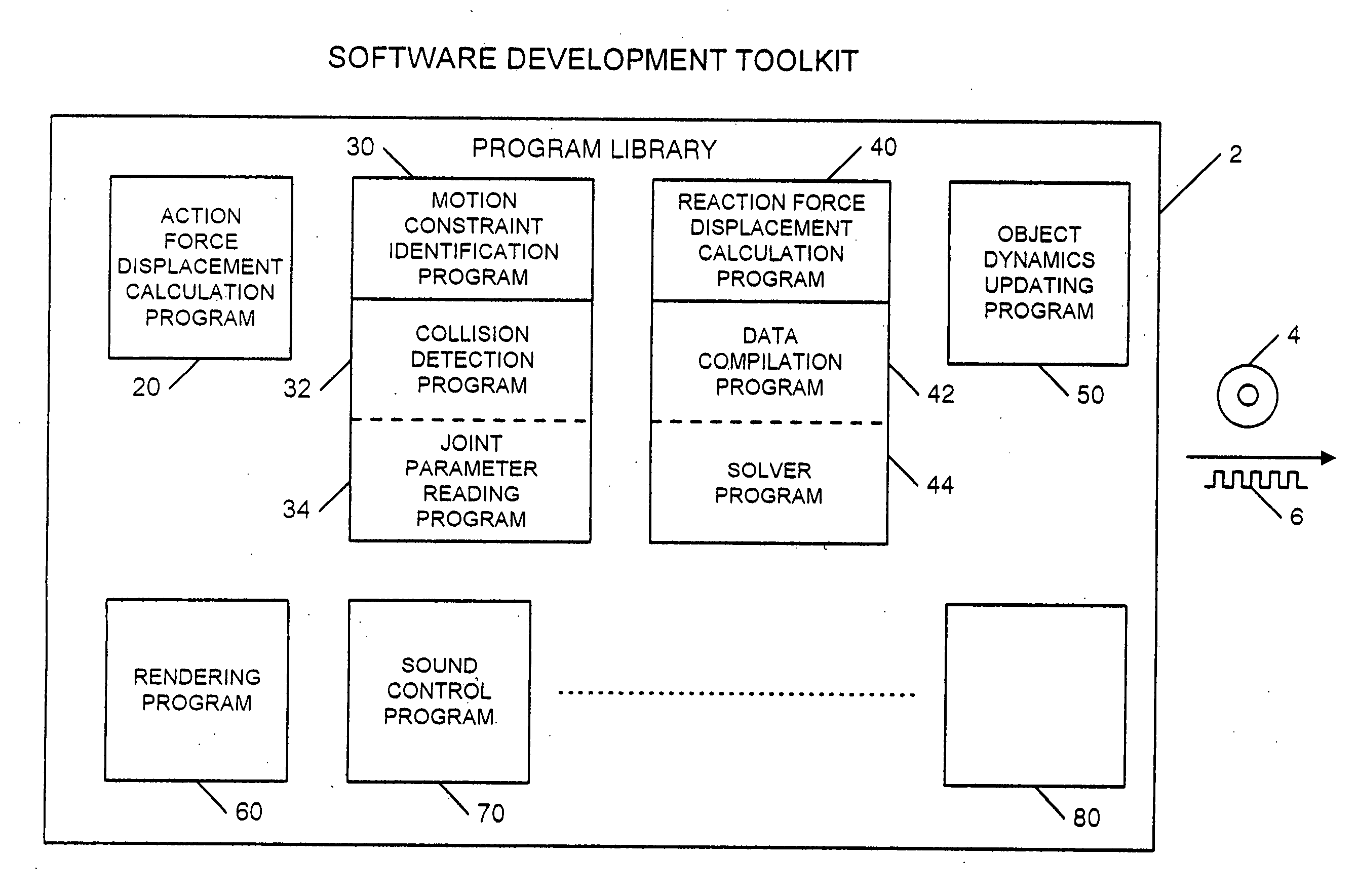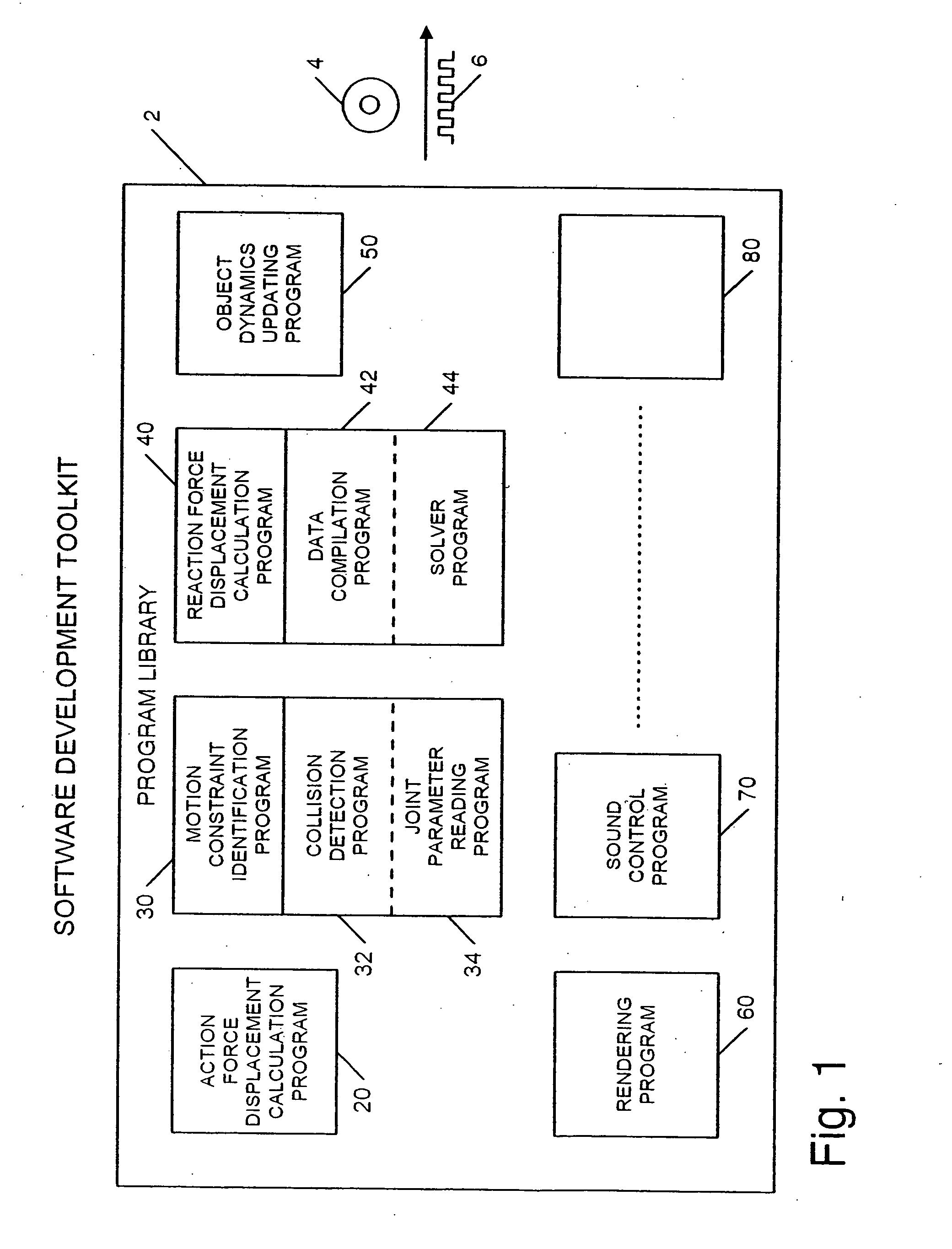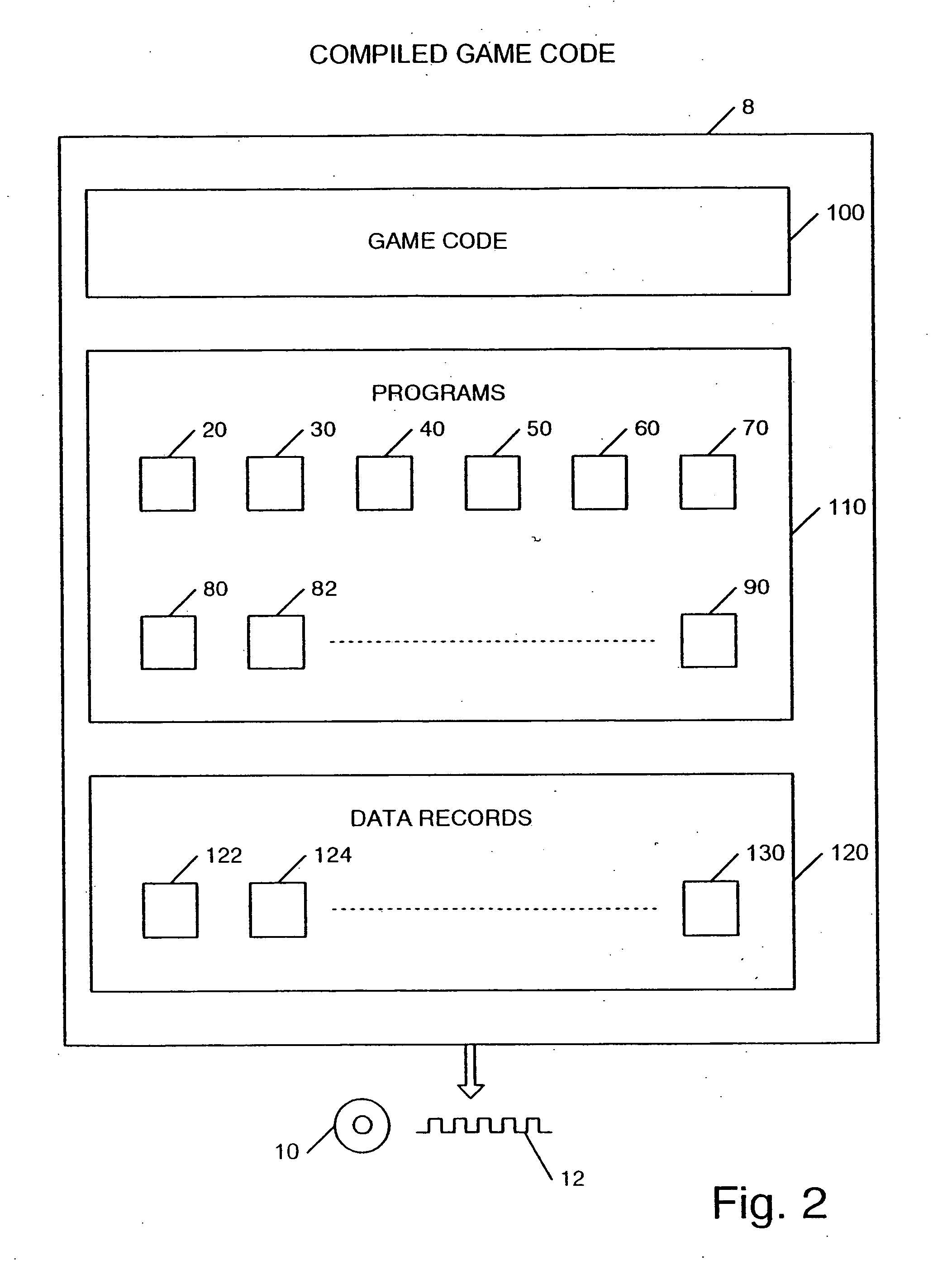Computer simulation of body dynamics including a solver that solves for position-based constraints
a computer simulation and solver technology, applied in the field of computer simulation of body dynamics, can solve the problems of computational cost and memory cost, and the approach above suffers from a number of problems, so as to reduce differences in positions and reduce differences
- Summary
- Abstract
- Description
- Claims
- Application Information
AI Technical Summary
Benefits of technology
Problems solved by technology
Method used
Image
Examples
Embodiment Construction
[0047] In embodiments of a simulator according to the present invention, constraint-based simulation of the interaction of rigid bodies is done where constraints are defined in terms of the displacements of the positions of the rigid bodies and displacements caused by constraint reaction forces when the bodies interact are calculated to ensure that the bodies comply with the displacement constraints.
[0048] The simulator can be devised of hardware specifically suited to the tasks or software executable by a general purpose programmable device (or other programmable device, such as a microprocessing system). While steps, operations and / or functions of the simulator are often described herein with reference to mathematical calculations, it should be understood that these calculations are performed by an electronic device or system. For example, it need not be explicitly stated, but it should be apparent that apparatus described herein could be used to perform matrix operations describ...
PUM
 Login to View More
Login to View More Abstract
Description
Claims
Application Information
 Login to View More
Login to View More - R&D
- Intellectual Property
- Life Sciences
- Materials
- Tech Scout
- Unparalleled Data Quality
- Higher Quality Content
- 60% Fewer Hallucinations
Browse by: Latest US Patents, China's latest patents, Technical Efficacy Thesaurus, Application Domain, Technology Topic, Popular Technical Reports.
© 2025 PatSnap. All rights reserved.Legal|Privacy policy|Modern Slavery Act Transparency Statement|Sitemap|About US| Contact US: help@patsnap.com



